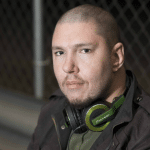While I’d not claim to be a “veteran” activist, I am experienced in pushing for specific reforms and seeing them through. Specifically, my undergraduate college had no administrator or office for disability-related needs in my first year. Numerous rounds of emails and face-to-face meetings with administrators resulted in the creation of a full-time position for coordinating accessibility accommodations.
I had many bouts of burnout spanning the two years it took to realize a long-term solution to that institutional need. The present document is one I wish I had in those years and summarizes points I’ve learned since then on how to stave off that burnout. It first summarizes a large-picture perspective that allows one to keep focus on why we do what we do. Second, it introduces practical habits that help one nurture the endurance that lasting change requires.
Introduction
We are not made for protest. We are made for family, for friendship, for joy. We protest the obstacles to family, friendship, and joy.
When the need to protest arises, it’s very easy to immerse oneself in the frustration and furor of rebelling against the presence of evil. In those moments, one easily forgets that perhaps the most rebellious act when face-to-face with evil is to laugh.
Laugh early and often. Laugh your [bleep]ing [bleep] off. Let the enemy see that ear-to-ear grin. Let the enemy see that, although heaven and hell may break loose and all the gods of Olympus may unite to destroy everything you love, you calmly tell them, “Not today.”
The enemy, we are told, comes to steal, kill, and destroy. So, we protest by giving life and building communities of peace—and not that weak absence-of-conflict peace but the genuine peace that leads to joy.
The Enemy, but Not the Enemy
In an essay titled “Inventing the Enemy,” Umberto Eco warns that even justice-focused people can succumb to the same hate-filled mentality against which they protest, for “even hatred of injustice . . . makes the brow grow stern.” Eco’s point is that hatred—even of injustice—hardens one into a hateful person.
The New Testament also says that the fight against evil is not against flesh and blood but against principalities and powers. In other words, as much as we want to put a face and a name to that which we protest, doing so only replicates the hate and animosity that threaten peace.
Intentionally or not, Eco reiterates the New Testament’s radical ethic of enemy love: “I would argue that morality intervenes not when we pretend we have no enemies but when we try to understand them, to put ourselves in their situation.”
Building Endurance for Building Peace
The life worth fighting for is also worth enjoying.
It may seem counter-intuitive to consider self-care as among the tasks required for the kind of activism driven by a commitment to creating change. After all, isn’t the whole point to be a voice for others? Yes, but a dehydrated throat runs dry, and the voice cracks. The following are tips for staying hydrated. The remainder of this is going to read like a BuzzFeed article. Oh well.
1. Enjoy life, enjoy family, and enjoy friendships. We can’t always take care of ourselves. We can’t always identify when we need to scale back for our own good. Family and friends are there to care for us at those times, just as we are for them.
2. Take care of yourself. Not every waking moment can be spent at a protest, reading the news, and the like. Rest well and eat well. Then fight well when the occasion demands.
3. Never feel ashamed for taking time to recharge. Shame is among the enemy’s favorite tools to incapacitate peace-builders. Perhaps it’s my inner high-functioning sociopath that doesn’t do shame, but I’m convinced that we occasionally need to recharge away from a fight in order to enter the ring again and go another round.
These three are musts. Without taking these precautions, burnout will happen. Below, in no particular order, are tips and tricks worth considering and adding to the regiment.
· A YouTube channel, Inspiring Peace, is run by a conflict analyst who’s turned her training toward US political polarization (shameless plug for a friend’s awesome work). These short videos introduce and describe concrete actions for social healing. Especially leading up the 2020 US general election, I highly recommend following this channel.
· Depending on how involved one becomes (whether actively participating or even just emotionally invested), stress and anxiety will come. Expect that and prepare for it.
· Similarly, being more vocal and more active will invite more resistance. It may be in the form of people expressing anger or resentment. It may ramp up to relationships being tested. And if you’re like me, you’ll expect to get arrested at some point.
If that stress and anxiety become overwhelming, do not hesitate to get help. It may simply be reaching out to loved ones to vent, but it may require involving a mental health professional—be it a counselor or even a psychiatrist.
· A very helpful safeguard against stress and anxiety is meditation, which has enjoyed a long legacy in the Christian traditions. For example, it features prominently in Augustine’s Confessions, and the Roman Catholic rosary prayers are a commonplace form of meditation. A “starter kit” I’d recommend is a small book Into the Silent Land by Martin Laird, which is a beginner’s guide to meditation as practiced within some Eastern Orthodox circles.
· Make time for those things that lift your spirits. Whatever that is for you, keep it on the itinerary: watch funny videos, listen to music, play video games, read, go for a run outside, flee the country and return decades later under an assumed name—whatever it is that suits your “me time.”
Stephen works and blogs here.
Reality Changing Observations:
- Are you fighting for peace and human flourishing, or are you fighting against what you see as threatening?
- What are your hotbed issues—the ones that damage your calm when they come up in conversation?
- How well can you disagree with a person’s idea rather than with the person?






